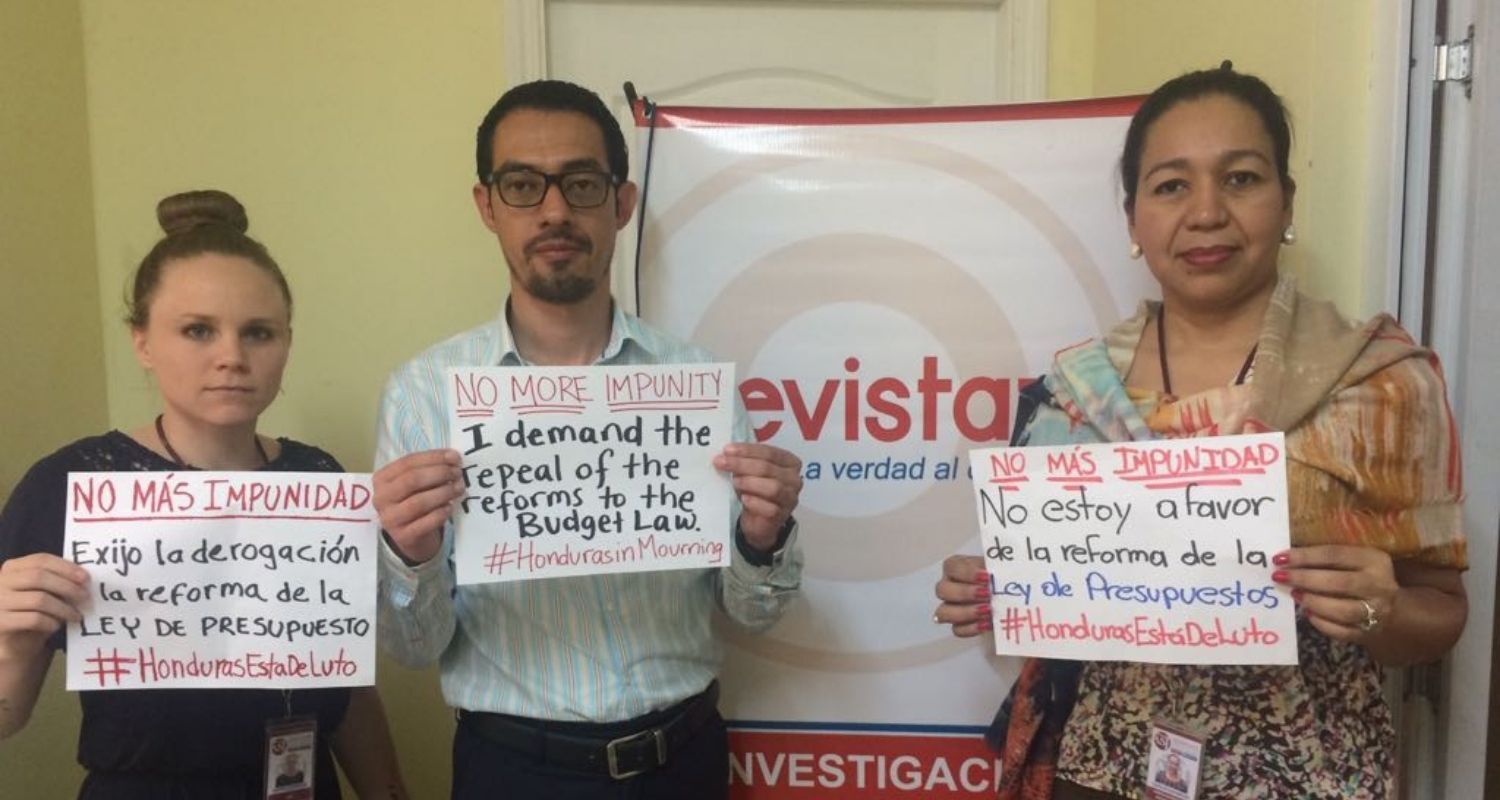February 8, 2018
“Have you heard about a little reform that the Honduran National Congress approved a few days ago? Article 131 of the Budget Law… Do you know what this change means? It creates conditions of impunity for corruption cases in the past, present, and future.”
The latest video from Revistazo, ASJ’s (formerly known as AJS) independent online news source, breaks down a recent reform and its disastrous consequences.
“The reform refers to the investigation of cash subsidies managed by members of Congress from the years 2006-2018,” the video’s narrator says, “It all started like this: thanks to laws created by themselves in the 1990s, Congressmen receive money from the State as “subsidies” in order to do social projects – funded by your taxes. They distribute this money to nonprofits, agencies, or individuals who often don’t make the investment that they’re supposed to, or divert the funds for other purposes.”
Revistazo has been reporting on the use of “subsidies” by Congress since 2012 when they released an in-depth investigation revealing that instead of funding highways, bridges, or schools, these funds were used for political campaigns, plane tickets, and even men’s underwear.
But the reforms don’t only lead to impunity for past corruption, they interfere with cases currently under investigation.
“In December 2017, the public prosecutor, with the support of the international anti-corruption body MACCIH, began to investigate the case of five Congressmen, members of an alleged network of 60 members of congress who diverted over a billion lempiras (over $55 million) between 2011 and 2015,” Revistazo’s video states, continuing, “After the reform to the Budget Law approved by Congress this January, those five Congressmen who were being investigated were freed by the judge who was managing their case. Will they ever be punished?”
The crux of the Budget Law reform is the power it takes from the public prosecutor’s office. Previously, the office was free to investigate any corruption case as soon as it came to light. These investigations could take place alongside additional investigations by the High Auditing Court, which determined whether the fault was administrative, civil, or criminal.
Now, however, the prosecutor’s office must wait until the Auditing Court completely finishes their investigation and issues a report before they can even begin to investigate.
“That means that a president, congressman, mayor, or minister can rob the funds that you and I pay in taxes and nothing will happen to them until the Auditing Court makes a report. Do you know how long it takes them to finish one of those?” asks Revistazo, “According to an investigation by ASJ, the average is seven years. The law only gives you 10 years to accuse a person involved in acts of corruption. So if the Auditing Court takes their normal amount of time doing their auditing; when they finish, the time for reporting the case will almost be up.”
“The result? Impunity.”
ASJ is taking action to ensure that Honduran politicians cannot continue to steal money from the Honduran public. On February 2nd, Director Carlos Hernández filed a complaint of unconstitutionality to the Supreme Court, asking them to overturn the reforms.
Meanwhile, Revistazo and ASJ Communications are calling on people to make their voices heard on social media using the hashtags, “Honduras is in mourning” and “No more impunity,” and tagging the National Congress in their complaints.
They’re also encouraging people to share the explanatory video, which after just one day has been shared 524 and has over 18,000 views.



















